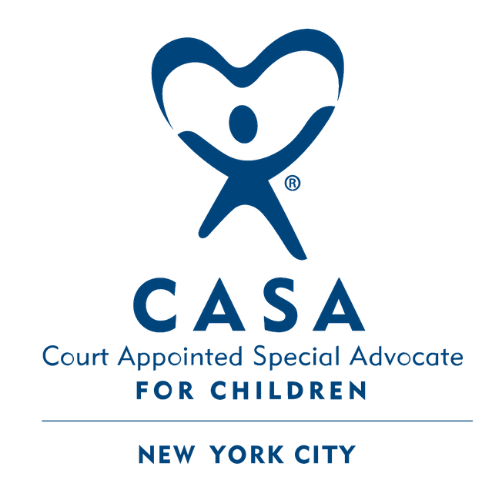Janette Smith-Foster is a die-hard Brooklynite and an equally die-hard CASA volunteer
April 9, 2021
This spring, Janette Smith-Foster is celebrating her tenth anniversary as a CASA volunteer. She is a "die-hard Brooklynite," born and raised in the borough where she also raised her two children and helped raise two nephews and a niece after her sister passed away. She has lived in the same Flatbush apartment for 38 years and says she'll be there "until they carry me out." Her work as a CASA volunteer is based in the Brooklyn Family Court.
While Janette has worked on every kind of case in her time as a CASA volunteer, she has participated in CASA-NYC's specialized training in working with pregnant and parenting youth and is particularly effective with these cases. "I had my daughter when I was very young," she says. "I know the nuances of being a teenager and raising a child, I know what that responsibility is."
When her daughter was born Janette dropped out of high school so she could work. Five years later she had a son, and when he was three, she decided she wanted a better life for herself and her kids. She went back to school to get her GED, and then on to get a bachelor's and master's degree in social work from Hunter College. She worked for the New York State Office for People with Developmental Disabilities (OPWDD) for 38 years, and was able to retire early in September 2010. "By the following January, I got bored. I like to be doing things. I loved watching Dr. Phil, and one day he and his wife talked about CASA... so here I am!"
Janette thought the idea of advocating for children in foster care sounded like a good way to spend her retirement, and she knew that both her life experience and decades of professional experience navigating social service systems would make a difference. She was right. She's usually working with three cases at a time, which is an exception to the "one or two cases" rule here at CASA, but Janette has the time, energy, and expertise to give every child and youth the attention they need. Once Janette meets a child, she becomes a permanent support system. She's been working with her current cases for six, nine and ten years respectively. She's been the one constant presence in the lives of these children as they've moved through multiple foster homes, caseworkers and attorneys, and now become young adults, one of them with children of her own.
When asked what makes her keep serving, Janette says it's the satisfaction of seeing children move from such despair to a place of being in control of their lives as young adults. She talks about Sylvia, who was 12 and living in a psychiatric hospital when Janette was appointed to her case. Janette was by her side and advocating for her as she transitioned to a residential treatment center, then a group home, and multiple foster homes. When she was acting out in one placement, Janette asked her why, and Sylvia expressed anger about not having any say in where she was living, because she didn't even get to meet the people she was living with before she moved in. Janette spoke with the foster care director and insisted that before her next move, Sylvia needed to be able to meet the prospective foster parent before she moved in. That simple act of listening to Sylvia, advocating for her to get what she needed to feel some sense of control over her life, seemed to make all the difference. "She's had so many struggles. She was in 6 or 7 foster homes before we finally found the correct match." But her last foster mother was the one. Sylvia is 21 now and just moved into her own apartment, but her last foster mother, who she calls 'Grandma', has remained a resource and will hopefully be a permanent support for Sylvia, as Janette intends to be. Sylvia's son is in foster care but Janette is helping her work toward reunification, which she believes is on the horizon. "In this last year, I've seen the light bulb come on as she's realized, 'I can be in control of my life.' I'm amazed at how she's grown."
Janette says she doesn't recommend having children as young as she did, "but the benefit is that I'm young enough now to be active with my two grandchildren and four great-grandchildren." And of course, her experience as a young mom also benefits the CASA youth she serves, like Sylvia. "We always had a very good bond but I think when she had her child, she didn't think I understood what she was going through. When the time was right, I let her know that I've been through it myself. That helped her trust me."

